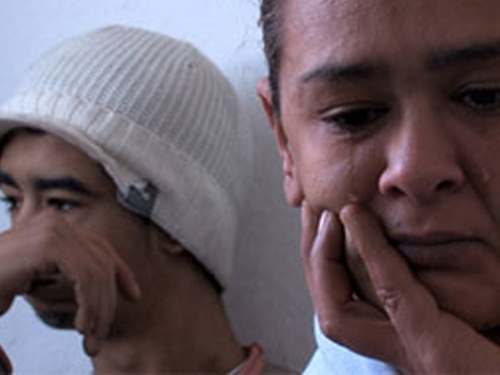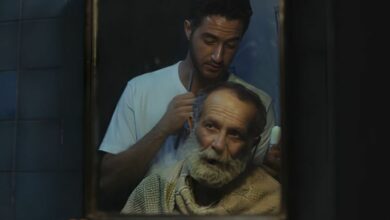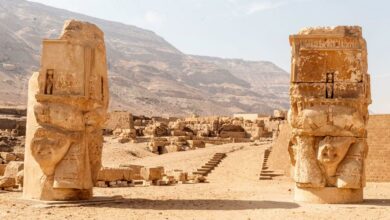
VENICE –– “Ya Man Aach” (It Was Better Tomorrow), Hinde Boujemma’s first feature-length documentary is screened in the Proiezioni Speciali section of the 69th Venice International Film Festival. Following Aida, a homeless and divorced woman whose main goals are to find a home and provide for her four children, even if it means taking unconventional measures, the unflinching documentary offers an alternative account to the overriding socio-political narrative in post-revolution Tunisia.
Egypt Independent sat down with Boujemma after the film’s last screening in Venice to discuss how the filmmaker encountered Aida and the new insights she gained while making a "revolutionary" documentary.
Egypt Independent: How did the audience react to the documentary?
Hinde Boujemma: I was really surprised by the audience’s reaction and the curiosity I sensed during discussions held after the screenings. It was as if they discovered a new country and new people. This notion of openness is new to us in Tunisia too; the revolution brought freedom of expression, and many people are starting to express the realities of the country. It’s an unprecedented chance for us, and my film comes as one of the first steps on this path of disclosure.
EI: The film displays the perspective of a specific social class, which seems a bit distanced from the dominant voices in the demonstrations you show. Why did you pick Aida as a protagonist to carry your viewpoint?
Boujemma: My understanding is that the real problems of society are the same as Aida’s: misery, unemployment and homelessness. It was important to me to explore the reasons that made the Tunisian revolt; and to me this is the primary answer: life was hard; it was not because of Islam or secularism. These ideologies hijacked the revolution.
Aida is such a powerful character, she is a warrior…and through her story, it struck me how an enormous event like the revolution can be elapsed by a lot of people, just because they have to tend for their basic needs to survive. The paradox is that these people, these social classes whose survival is on the line, are the ones who fueled the revolution, but in the end they are not interested in politics.
EI: But in one scene, Aida talks about how she voted and explains her reasons.
Boujemma: It was extraordinary for me. I didn’t imagine she would vote…initially she wasn’t going to vote, then on the voting day she called and told me about how everyone is in the streets voting, and how she feels she should join them. There was a great overall sense of freedom to go vote, because in the past, voting was a theatrical act. There was a feeling of happiness of the streets; that feeling was lost after the elections.
Her vote however shows she is not a political person, her logic was: this ballot contains doctors, and doctors help people, so I’m going to choose them to help us. A simple but clever logic, it touched me a lot.
EI: How did you meet Aida?
Boujemma: I saw her while I was covering the celebrations on the street a week after Ben Ali fled the country. Something was unusual about her. She seemed oblivious to all. It was evident on her face that she did not care about what was happening two meters away from here, and at that point Tunisians on the street were all talking to each other like they were one big family. I approached her, we started talking, and there was something about her eyes, something beyond sadness, as if she was dead inside.
EI: How long did it take you to shoot this documentary? And how did you manage to be there at all these dramatic moments like the jail scene and her breaking into vacant houses?
Boujemma: It took me a year and a half. We developed a friendship, and were usually talking on the phone. I was often going to her place with the camera; she was always full of surprises. The first day I met her she had a hammer in her hand, and when I asked her what it is for, she said she is going to break into and squat a vacant apartment because she needs a place to stay! Other times, like the time when Aida was taken to jail, her mother called me.
I managed to shoot with her inside jail because it was at a transitional period. It wasn’t clear who was in charge so I managed to get a camera inside and document accounts from many of the women there. On the other hand, there are no night scenes in the film because there was a curfew back then.
EI: How did the changes along the course of this one and a half year affect you and Aida?
Boujemma: Aida hasn’t changed at all. She gave me a lot of her life but she remained unchanged. As Tunisians, maybe we grew more worried; normally people prefer stability and are afraid of change, and it is legitimate to have this fear because we have no clue where the country is going. But at least we know we don’t want to go back to a dictatorship, and this goes for me, Aida and Tunisians at large.




